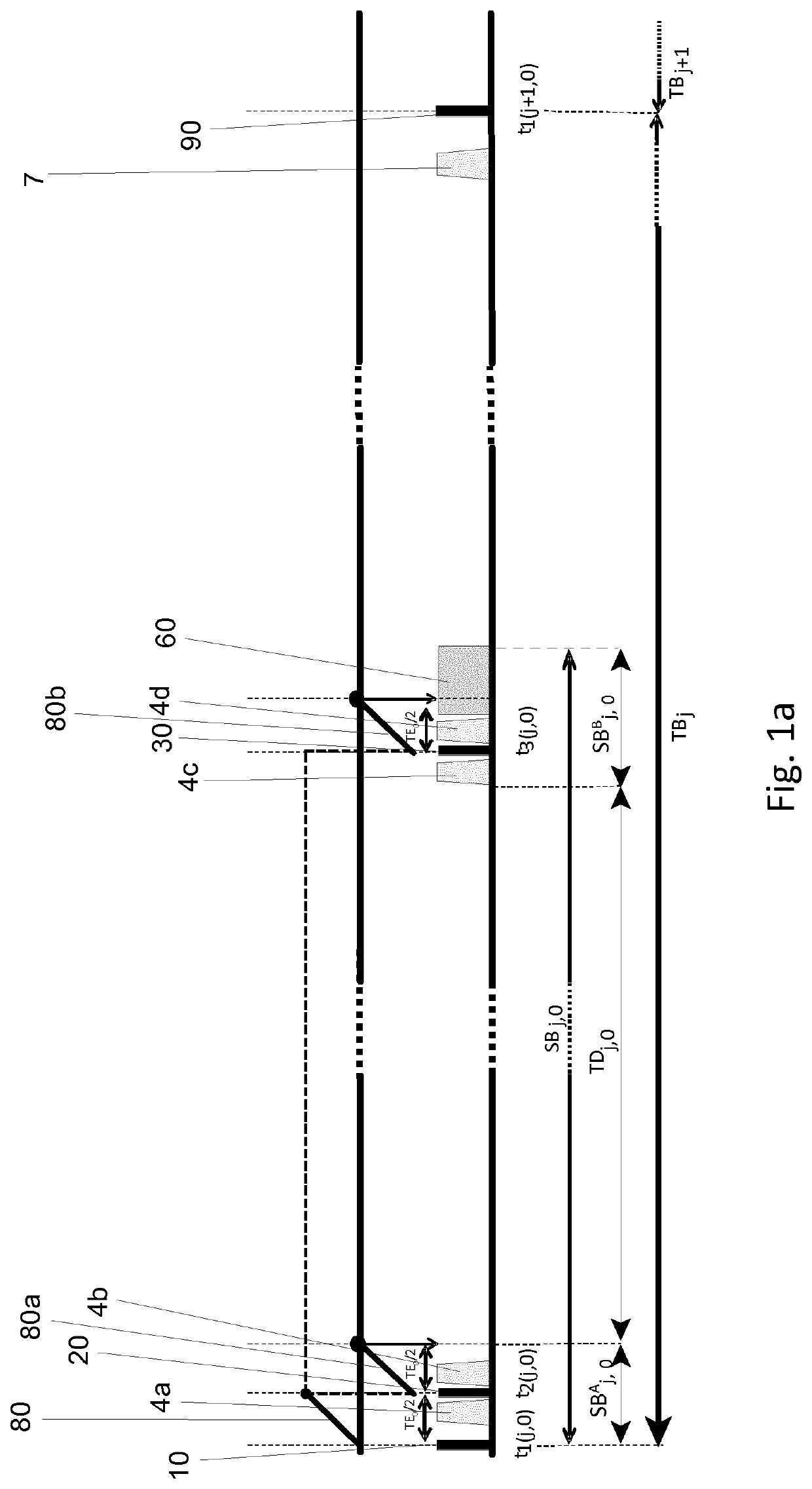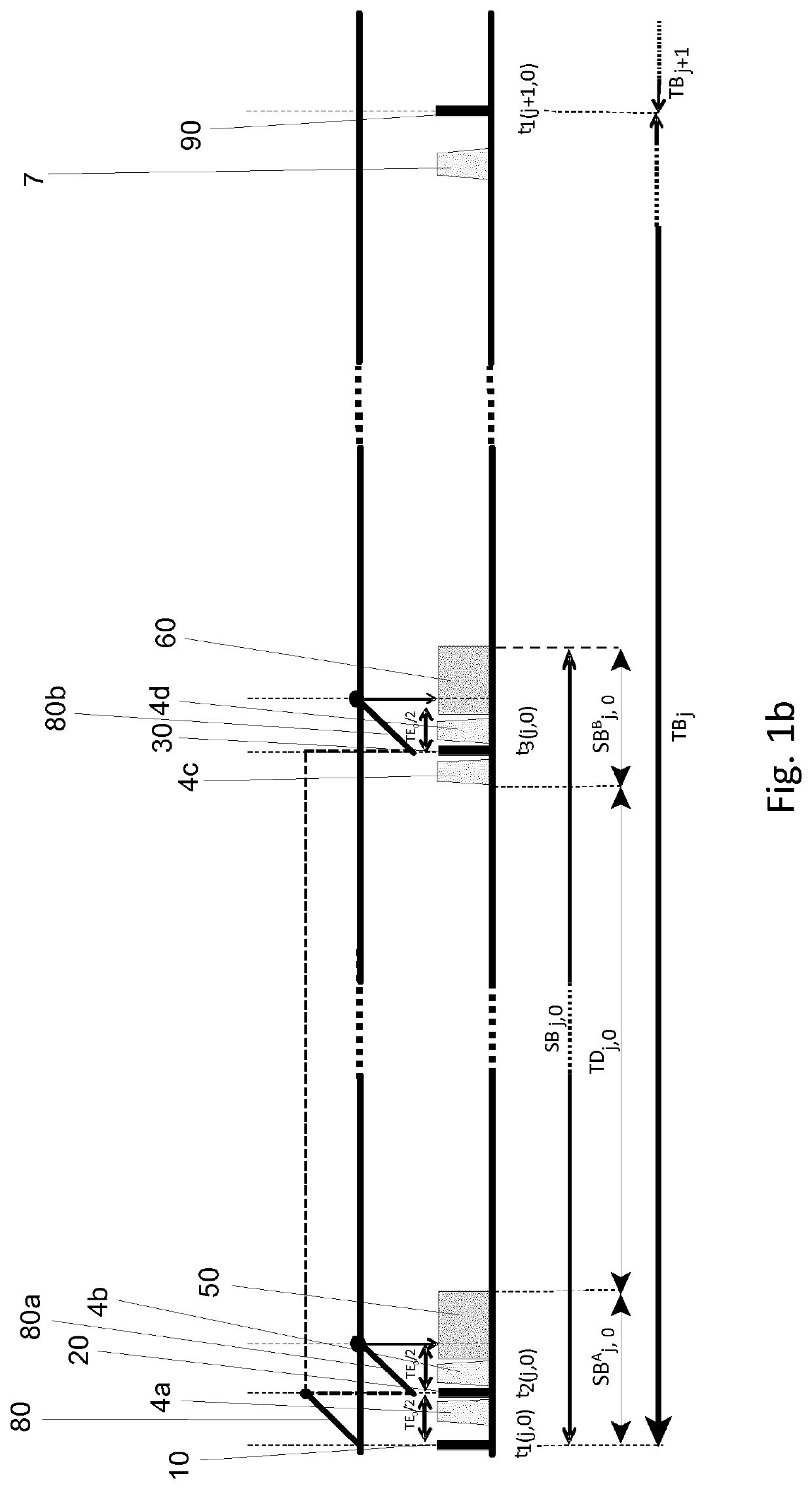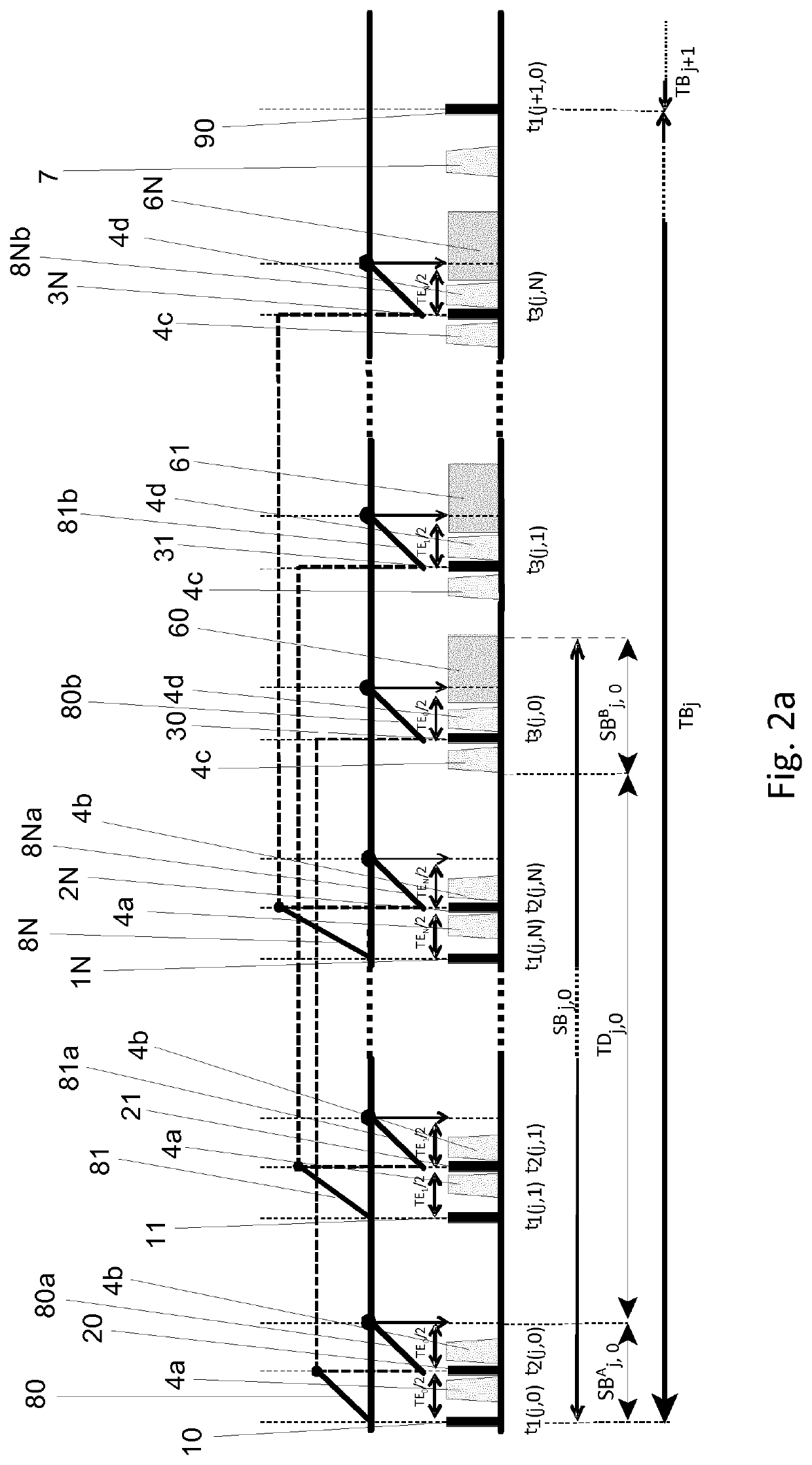A method and a MRI apparatus for obtaining images of a target volume of a human and/or animal subject using magnetic resonance imaging (MRI)
- Summary
- Abstract
- Description
- Claims
- Application Information
AI Technical Summary
Benefits of technology
Problems solved by technology
Method used
Image
Examples
Embodiment Construction
[0009]The invention aims to provide a solution for the above identified problems, allowing an order-of-magnitude speedup in acquiring T1-, T2- and diffusion-weighted images. This high speed of scanning allows many (tens of) imaging volumes to be acquired in short time. These are then suitable for calculating quantitative images which are relatively free of B1 artifacts. As such the invention can be implemented on high and ultra high field (UHF, notably 7 Tesla) scanners without being as limited by specific absorption rate (SAR) as most existing T1-, T2 and diffusion-weighted acquisition techniques are.
[0010]According to the invention the method for obtaining images of a target volume of a human and / or animal subject using magnetic resonance imaging (MRI) comprising at least the steps of:[0011]A applying, to said human and / or animal subject being positioned in an MRI scanning apparatus, during subsequent total block times TBj with j ϵ [1, 2, . . . , K] a first set of spatially select...
PUM
 Login to View More
Login to View More Abstract
Description
Claims
Application Information
 Login to View More
Login to View More - R&D
- Intellectual Property
- Life Sciences
- Materials
- Tech Scout
- Unparalleled Data Quality
- Higher Quality Content
- 60% Fewer Hallucinations
Browse by: Latest US Patents, China's latest patents, Technical Efficacy Thesaurus, Application Domain, Technology Topic, Popular Technical Reports.
© 2025 PatSnap. All rights reserved.Legal|Privacy policy|Modern Slavery Act Transparency Statement|Sitemap|About US| Contact US: help@patsnap.com



